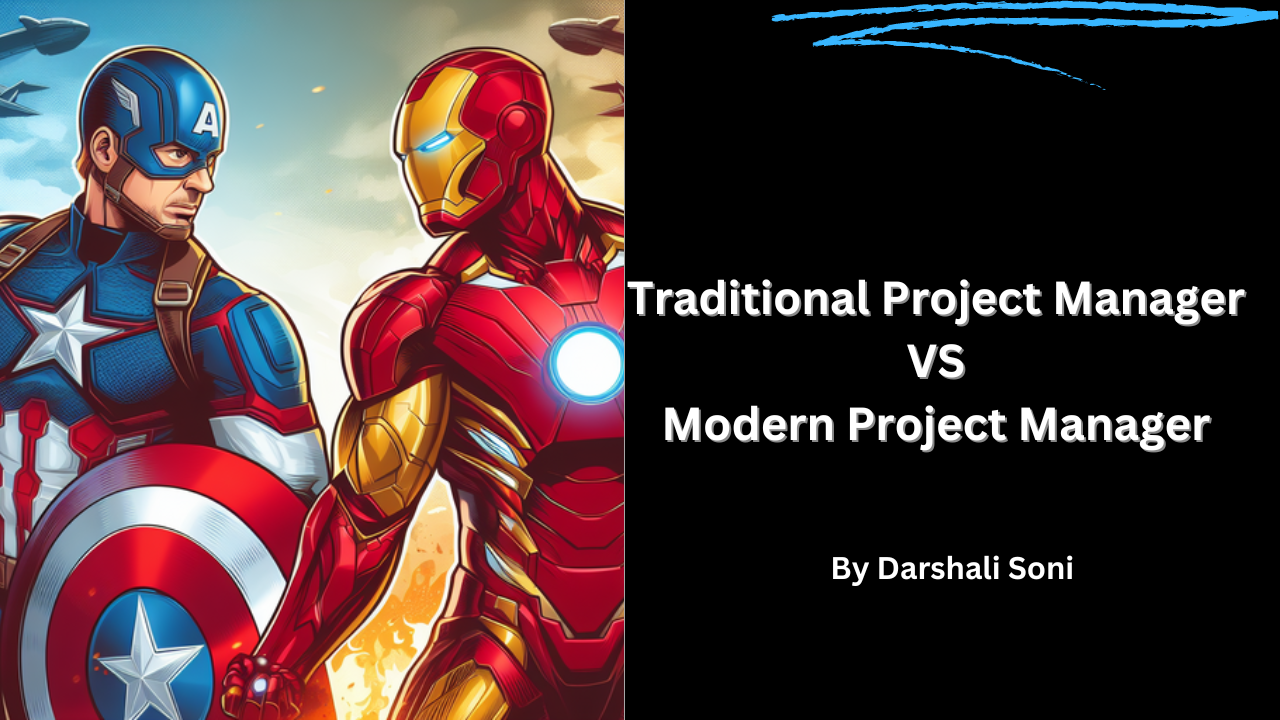Traditional Project Manager VS Modern Project Manager
In today’s newsletter, I want to share some truth bombs. A topic which can raise many eyebrows but that’s ok. So, here we go - What is the difference between traditional Project Manager and Modern Project Manager?
Now, you might argue that - this comparison should not be there - or everyone has different working style. But still, it does make a difference. We will talk about this difference from three perspectives:
Mindset, Communication and Methodologies.
Disclaimer - This newsletter is general observation, advise you to read it with open mind and if any points resonate with you - Be open to make changes or request changes with your Project Managers too :)
Let’s get started:
Mindset about planning:
Traditional PM:
Focuses on predictability and control: Rigid adherence to pre-defined plans and methodologies is paramount. Success is measured by hitting deadlines and staying within budget, even if it means sacrificing flexibility or innovation.
Modern PM:
Embraces agility and adaptability: Comfortable navigating change, responding to evolving requirements, and iterating based on feedback. Prioritizes learning and continuous improvement.
Mindset about authority
Traditional PM:
Hierarchical: Views themselves as the sole authority figure, responsible for making all decisions and directing team members.
Modern PM:
Collaborative: Values teamwork, empowers team members, and encourages open communication across all levels.
Mindset about risk
Traditional PM:
Risk-averse: Prefers to avoid uncertainty and minimizes risks by sticking to established processes.
Modern PM:
Data-driven: Makes decisions based on insights from data and analytics, rather than intuition or gut feeling.
Communication with team:
Traditional PM:
Top-down, hierarchical: Frequent reporting to superiors, limited information flow across teams. Communication tends to be formal and one-way, with little room for open dialogue or collaborative problem-solving.
Modern PM:
Transparent and collaborative: Utilizes technology to promote real-time updates and information sharing. Encourages open feedback and participation from all stakeholders. They are mindful listener too.
Mindful Communication
Traditional PM:
Focuses on written reports and presentations: May not be as skilled in real-time communication or active listening.
Modern PM:
Emphasizes active listening and effective storytelling: Skilled in communicating complex information in a clear and concise way.
Co-ordination:
Traditional PM:
Command-and-control: Project manager dictates tasks and assignments. Team members operate in silos, with limited cross-functional collaboration.
Modern PM:
Empowers self-organizing teams: Trusts them to manage their workload, collaborate effectively, and make decisions. Scrum Guide also encourages on self-organizing team.
Methodologies
Traditional PM:
Relies heavily on Gantt charts and waterfall methodologies: Can be slow to adapt to changes or unexpected challenges.
Modern PM:
Utilizes agile frameworks like Scrum or Kanban: Promotes iterative planning, continuous feedback, and rapid delivery.
Leverages project management software: Tools like Asana, Trello, or Jira facilitate communication, task tracking, and resource allocation.
Metrics:
Traditional PM:
Traditional project managers focus on metrics like time, budget, and scope.
Modern PM:
Modern project managers also consider additional factors like customer satisfaction, team morale, and innovation.
Remember, these are generalizations and there will always be exceptions.
